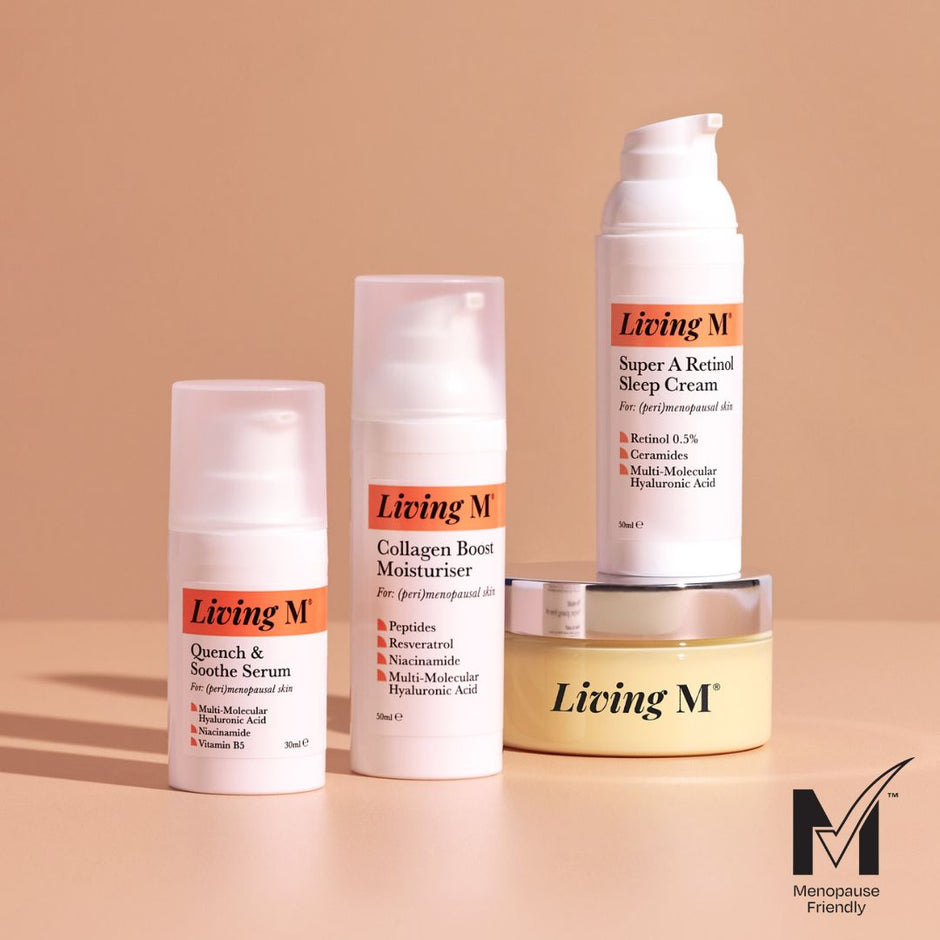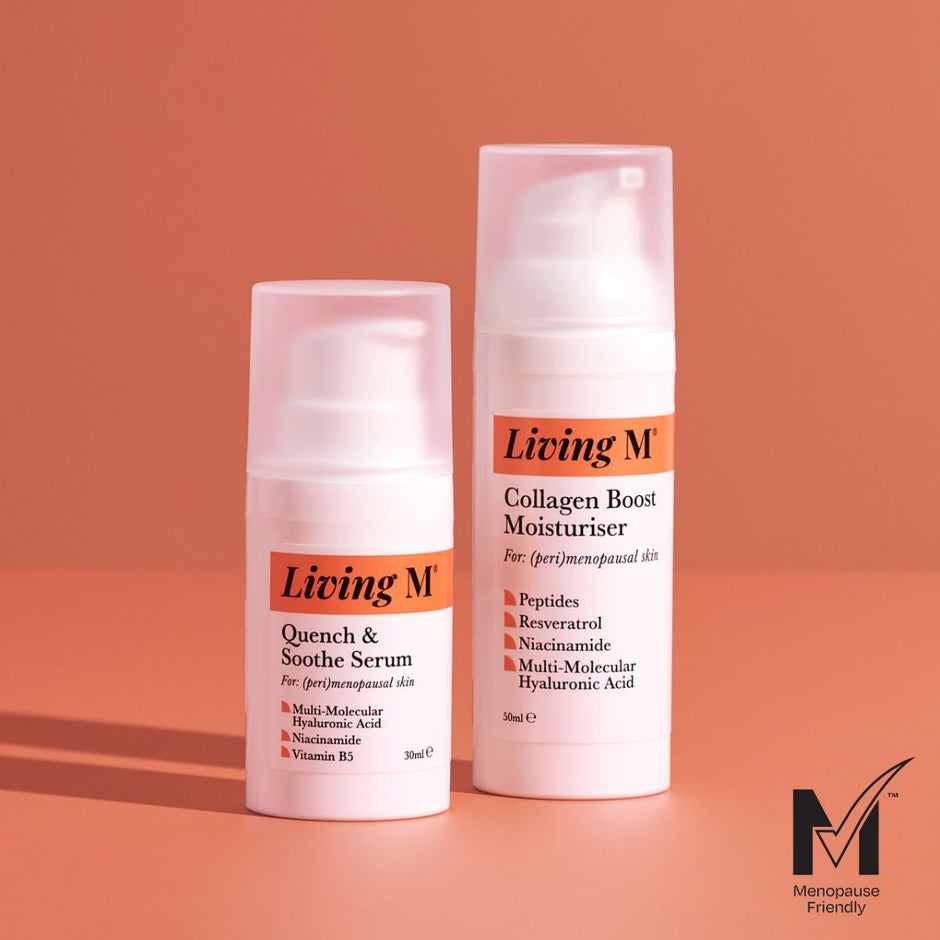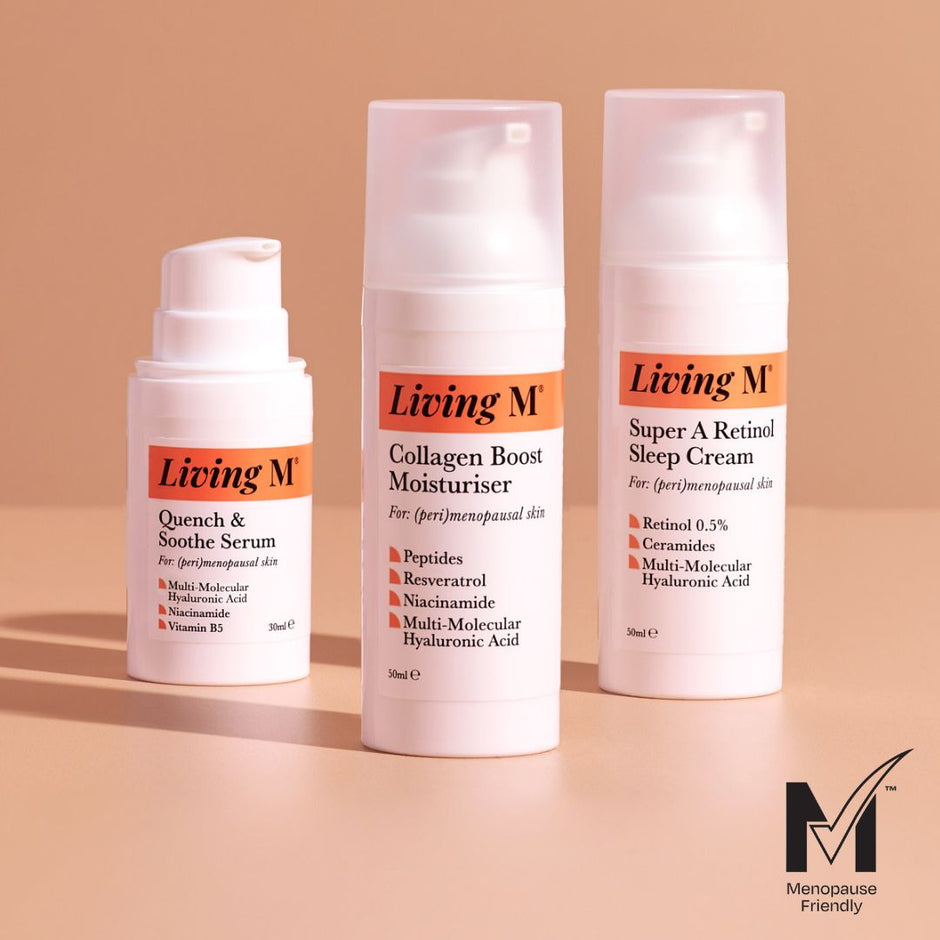We frequently talk about hormonal changes in relation to puberty and pregnancy, but rarely in relation to the menopause. The fact is that declining levels of progesterone, testosterone and, particularly oestrogen, have a huge impact on the condition of our skin.
The hormonal changes we experience as menopausal women can impact our skin far more than simply ageing. Lower levels of oestrogen in menopause can weaken skin’s natural protective barrier. This can be a recipe for increased dryness, inflammation, and sensitivity. Exactly what you are trying to avoid. Understanding how to protect and care for your skin barrier is key to healthy, glowing skin in menopause.
What is the Skin Barrier and What Does it Do?
Also called the stratum corneum, the skin barrier is the outermost layer of the skin's surface. Often compared with a brick wall, it is a protective structure essential for healthy skin. Essential nutrients like fatty acids, cholesterol and ceramides collectively called "skin's natural moisturising factor" help make up the skin barrier. The skin barrier basically keeps the good stuff in and the bad stuff out, locking in moisture and protecting against environmental stressors.
What Happens to the Skin Barrier when Oestrogen Declines in Menopause?
As we head through menopause, oestrogen levels start to fluctuate and decline impacting the condition and health of our skin. These hormonal fluctuations cause the skin barrier to weaken and vital moisture to be lost. External stressors are able to penetrate the skin, causing irritation and redness. Lacking in natural moisturisers, menopausal skin becomes more sensitive, reactive, and prone to irritation. A weakened skin barrier can make common menopausal skin symptoms like dryness and dullness even worse.
Many women find that products they have been happily using for year can suddenly start to cause irritation. If you have always had sensitive skin you will probably find it becomes even more sensitive as oestrogen levels decline. Understanding how to protect and care for our skin barrier is key to healthy skin in menopause.
Less is More in Menopause – What to Avoid
As our changing hormones start to change our skin, a fresh approach to skincare is what we need. If your skin barrier is damaged, it’s important to avoid anything that might cause further damage.
It can be tempting to try lots of different products and ingredients to reverse the skin symptoms of menopause, but this can be a recipe for inflammation, sensitivity and increased dryness. Avoid overloading your skin in menopause and look to simplify your routine with a simplified but highly effective collection of targeted products. The more products you use, the greater the risk of irritation, so keep it simple and your skin will thank you for it.
Avoid harsh and irritating ingredients that can further weaken your skin barrier. Drying alcohol, sulphates, fragrance and essential oils are all key triggers for skin irritation. These ingredients are in a lot of skincare products but you need to avoid them in menopause.
At Living M we’ve made it easy for you– our skincare is 100% free of fragrance, essential oils, sulphates and drying alcohols.
What Ingredients Help Protect the Skin Barrier In Menopause?
Hyaluronic Acid & Glycerin to boost lost hydration
Restoring hydration is key for a healthy skin barrier. Look for ingredients that act as humectants like hyaluronic acid, glycerin and panthenol (vitamin B5). Humectants work by drawing water and binding it to the skin barrier.
Niacinamide to strengthen skin
Also, look for ingredients and products that will strengthen the skin barrier. When it comes to skincare superstars it doesn’t get much better than Niacinamide. Also known as Vitamin B3, it is one of the most multitasking ingredients in skincare with huge benefits for menopausal skin. Niacinamide helps strengthen your skin barrier by boosting ceramide production. It also acts as an occlusive moisturiser, creating barrier on the skin to prevent water loss. Used over time Niacinamide will also help to increase the thickness of the skin barrier.
Ceramides to replenish skin’s natural barrier
Ceramides are like the glue that holds skin cells together to keep our skin barrier intact and healthy. They are lipids that occur naturally in skin but start to decline as oestrogen levels decline in menopause. This can leave skin lacking in moisture, dry and dehydrated. Using products that contain ceramides will replenish natural ceramide levels and restore the health of the skin barrier. This will prevents moisture loss and damage from external stressors leaving skin supple, hydrated and protected.
Our simplified menopausal skincare routine for maximum results - The Menopause Skin Solution Set targets the signs of oestrogen and collagen loss and repairs skin’s natural barrier
Step 1 QUENCH & SOOTHE SERUM is perfect for barrier repair with a supercharged dose of hydration formulated with hyaluronic acid, glycerin, niacinamide and vitamin B5.
Step 2 COLLAGEN BOOST MOISTURISER deeply moisturises and relieves skin dryness with a super nourishing blend of peptides, antioxidants, natural butters and hyaluronic acid
Step 2 SUPER A RETINOL SLEEP CREAM stimulates cell turnover and replenishes skin’s natural barrier with a blend of time release retinol, ceramides and hyaluronic acid.





